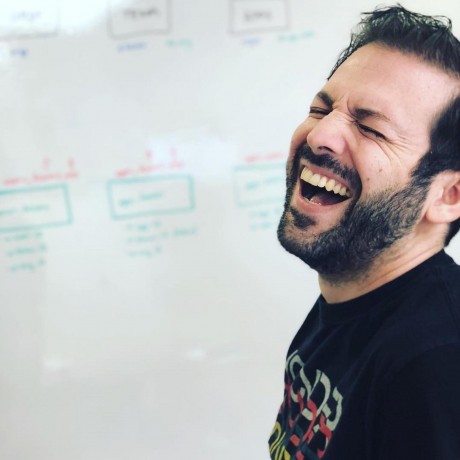Tell a Story
Published
on Dec 20, 2011
Writers are born to tell stories, and that heritage spans all the way back to before the written word when writers were actually considered storytellers. The talk of the town literally was the stories of past heroes, and myths that were told in public forums where the town or a group of people gathered to hear a new or re-imagined tale. What that atmosphere must have been like to have a town of people hanging on the words of a orator? He told the tales that were passed down to him, the same tales that he spent hours memorizing until both the inflection and words themselves were exact.
## The Past
When I was a kid I became deeply fascinated with the written word, even before I could actually read it. There were times when my mother would find me in a room with an upside down book. The words even then leapt from the page, and started a curiosity that would eventually get nurtured by several teachers over the years. The accumulation of knowledge for the individual, often leads to another transformation to want to express that knowledge or insight to others.
Having learned my own craft of writing at an early age, from either books I read, or from schooling I may have a slightly different viewpoint on how writing starts and ends. Though with any journey there tend to be bumps along the way, and what better way to learn how to write than to learn what not to do first.
## Starting with the Basics
A few years ago I did several one-day workshops, for kids in elementary school, high school kids, and then eventually for anyone in the public who wanted to learn the craft of writing. I laugh now because the craft of writing can be both a simple task to start, but also a daunting one at the same time. The written word is not a mere quick learn. There are subtle nuances in the inflection of one word, or in the use of another. Having been terrible at self-editing from an early age, or at least not being taught it effectively I have struggled with several pain points as I wrote. Should I put that comma here, or there? It wasn't until college that some of the basics started to make sense.
Being an avid reader, it tended to be harder to understand why others could grasp those simple basics and I was left in the dust without an understanding. For years I chalked it up to being a problem that I could not see in my own writing. I could edit anyone else piece, and usually nailed it about 80% of the time, but I never could get it right with my own.
## Beginnings
Though as I ramble on I realize that writing is simpler than I was trying to make it. The first step to any story, great or small, is that you start with a word. A story is a story. I have used both personal and fictional experiences to weave a story together where characters struggle. For those stories that are personally related to a point in my own life I feel invested to see those characters through and that tends to be where I capture most of my readers. I grab them in the midst of that struggle, and from a reader they are invested in seeing those characters, or character succeed.
So no matter what the story you want to tell. Sometimes it doesn't really so much matter where you begin, or if you're qualified to tell the story. It starts with the want to tell the story. So to encourage you, tell your story. Do it in a blog, a story, a novel, or on a napkin. The important thing is that you tell the story.
